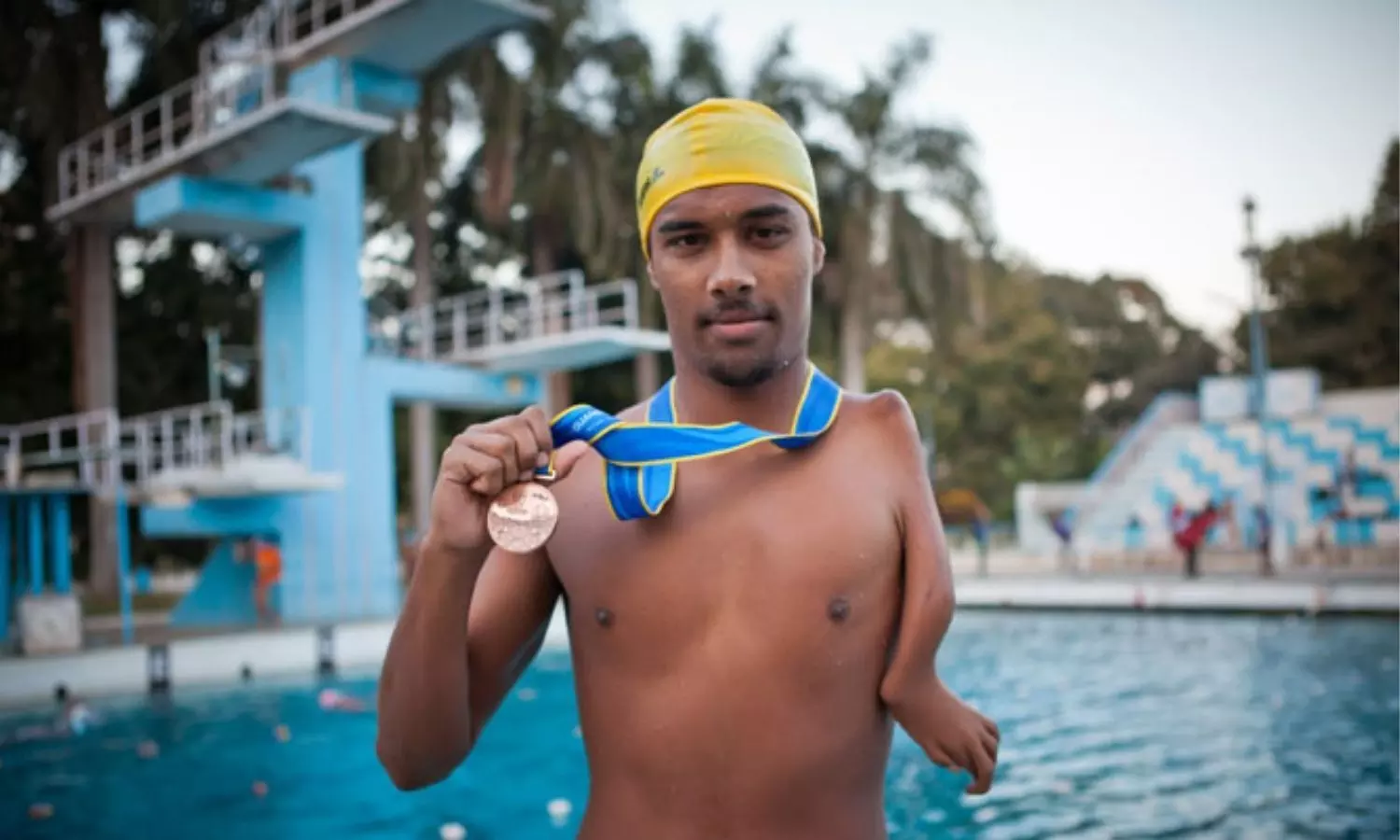Tokyo 2020 Paralympics
The realistic expectations from our swimmers should be final qualification: Former Paralympian Sharath Gayakwad
The 2012 London Paralympian Sharath Gayakwad talked to The Bridge about India's chances in swimming at the Tokyo Paralympics and more.

Sharath Gayakwad (Source: Paralympics.org)
Swimming was the sport India first tasted success in at the Paralympics. A certain Murlikant Petkar clinched the gold medal in men's 50m Freestyle at 1972 Heidelberg Games to hand the country its first-ever medal at the Paralympics.
But, since then India has never quite replicated what the Padma Shri awardee, Petkar, achieved in the swimming pool. Yes, multiple Indian swimmers have qualified for both the Olympics and the Paralympics over the years, but neither did they return with any medal nor did they manage to capture the attention of Indian fans.
The 2020 Tokyo Olympics, though, was different. Two swimmers from the country breached the 'A' qualification mark for the first time ever – that too within days of each other, while a third was handed the 'Universality Quota.'
The situation seems to be quite similar at the 2020 Tokyo Paralympics. Though India has always had representation in swimming, this is the first time in a long time that two Indian para-swimmers, Suyash Jadhav and Niranjan Mukundan, have qualified for the Games.
While it is quite certainly a big achievement for Indian swimming, the 2012 London Paralympian swimmer Sharath Gayakwad feels that we should keep our expectations in check and let Suyash and Niranjan be.
"We are definitely looking at the final, considering both Suyash and Niranjan's world rankings. We definitely have very good chances to qualify for the final, but I will not guarantee anything more. We should just hope that they give their best performance and wait for the results," Gayakwad said over a call to The Bridge.
The experienced swimmer, who has multiple Asian Para Games medals in his bag, believes that there would be immense pressure on Suyash and Niranjan, but the duo would have to forget all of it on the day of their event.
"It is everybody's dream to compete at the Paralympics. They have trained all these years to be there and compete, so there will definitely be pressure to win a medal. But, in the end, all the efforts have to go towards giving your best performance; results will come along. If you worry too much and tell yourself you have to win a medal and there is no option, then it would get difficult. Even a fraction of a second matter at this stage, and all you can do is put in your best," the 30-year-old said.
One of the most important things for succeeding at the world stage in sports is proper facilities. While the Target Olympic Podium Scheme (TOPS) is certainly a big boost to the athletes, Gayakwad points out how a major portion of the help for para-athletes comes from clubs or the private sector.
"I, at times, feel the facilities were better during the time I was competing in. What we saw in the country during the 2010 Commonwealth Games was on a whole new level. Not to say that they are not good now, but a lot of it comes from the private sector or the swimmers themselves pay from their pocket. Yes, the TOPS has been of great help, but there is still a lot to be done," he states.
Besides, Sharath Gayakwad also advocated strongly for the development of swimming at the grassroots level. He states that the country needs to see each young athlete starting out as an Olympics or Paralympics prospect and train them accordingly.
"I feel we need to look at all the young athletes starting out as an Olympics or Paralympics prospect. When you talk about para-swimming there has been a lot of decline over the years in terms of people taking up the sport. At the grassroots, we need to develop programmes where we are teaching the kids right from the basics and give them a five-six year buffer period to see how they have improved. Through my personal coaching experience we go through a lot of physical assessments, regular body checkups – all these have to be implemented at the grassroots to have a better future."
